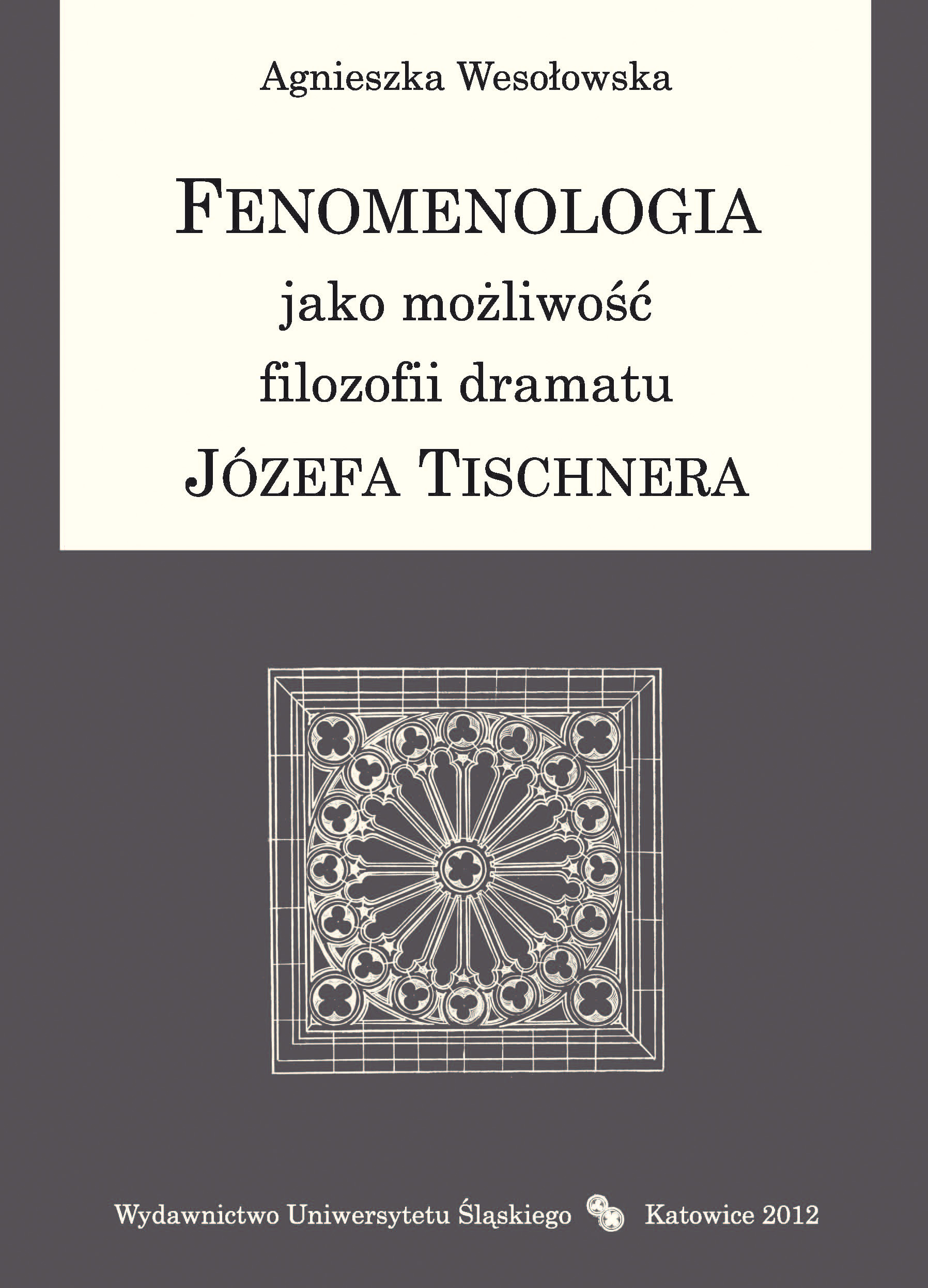Fenomenologia jako możliwość filozofii dramatu Józefa Tischnera
Phenomenology as a possibility of Józef Tischner’s philosophy of drama
Author(s): Agnieszka Wesołowska
Subject(s): Philosophy, History of Philosophy, Special Branches of Philosophy
Published by: Wydawnictwo Uniwersytetu Śląskiego
Keywords: phenomenology; Józef Tischner; philosophy of drama
Summary/Abstract: The work constitutes a result of a thought of a historio-philosophical nature,a thought on the project of Husserl’s phenomenology (classic phenomenology)on the one hand, and on the development of Tischner’sphilosophical output from phenomenology to philosophy of drama on theother. The main aim, realized in the work in the form of three steps (leadingfrom phenomenology to the philosophy of drama) subject to a tripartitestructure of the work, was to prove the main hypothesis claiming thatphonomenology treated as Husserl’s philosophical project, dealt with andcreatively developed by Tischner as an initial inspiration, constitutes thepossibility of the final effect of Tischner’s output, that is the philosophy ofdrama. An initial inspiration, that is phenomenology, remains for the philosophyof drama only an inspiration that is not exhaustive the scope ofpossible philosophical references of this philosophy. The realization of themain hypothesis enables a linear and three-stage (corresponding at thesame time to the architectonics of the development of Tischner’s thought)course of the argument: three parts of work of the following sequence:Husserl’s phenomenology as a project (part one), Tischner’s understandingof phenomenology (part two), and From phenomenology to philosophy ofdrama (part three).In the first part (Husserl’s phenomenology as a project) phenomenologyis presented as a project, initiated and realized by Husserl, but never fullyrealized, a project indicating research scope, and outlining a horizon ofclassic philosophical problems: epistemologic, metaphysical, ethical andaesthetic ones. Such a broad spectrum of problems directs a thought onphenomenology understood as a possibility, as an indefinite flow of problems.Tischner’s understanding of phenomenology also inscribes into sucha perspective. That is why it is extremely important from the perspectiveof the issues raised in the work to show phenomenology as a possibility ofthe philosophy of drama at the end of part one. In this very part, to justifythe subject-matter the author does not present Tischner’s thought, but herown understanding of phenomenological philosophy, in which she also inscribesTischner’s concept as late as in the last subchapter. A creative useof openness that characterizes Husserl’s philosophy according to Tischner,makes a Polish thinker go beyond the frames of the classic phenomenology,that is, where new areas, researched so far by other than phenomenologicalmethods, reveal.The second part (Tischner’s understanding of phenomenology) is fullydevoted to Tischner’s understanding of phenomenology. As the thought ofthe author of Thinking According to Values changes in the womb of phenomenologydeveloped by him, one can notice a shift from a transcendentalto an axiological accent. The very part is an attempt to prove the hypothesisthat an axiological interpretation of “I”, and thus, a complement toHusserl’s thought, is not a consequence of its external criticism, but a symbolof its internal potential recognized by phenomenology itself.The main aim of the third part From phenomenology to philosophy ofdrama is a reconstruction of the process of transition from phenomenologyto the philosophy of drama, an outline of the path of development (evolution)of Tischner’s thought. In the light of the results of analyses conductedit turns out that within his own philosophical thought, Tischner characterizestranscendental mindset of “I” and, in consequence, drama, a discordbetween natural and transcendental attitude perceived as a discord betweennatural and axiological-agatological attitude.The perspective of the philosophy of drama presented in the book, beinga result of revealing Tischner’s original thought in statu nascendi, in itsbeginning, Husserl’s phenomenology constitutes is certainly one of the possibilities.The aim of the work was to show the aspects of philosophy ofdrama that prove its phenomenological provenance. We hope that lookingat philosophy of drama from the angle of its beginning, and taking into accountits primary relations to phenomenology, will make a reliable pictureof Tischner’s philosophical works.
- E-ISBN-13: 978-83-8012-548-3
- Print-ISBN-13: 978-83-226-2091-5
- Page Count: 312
- Publication Year: 2012
- Language: Polish
- eBook-PDF
- Table of Content
- Introduction

